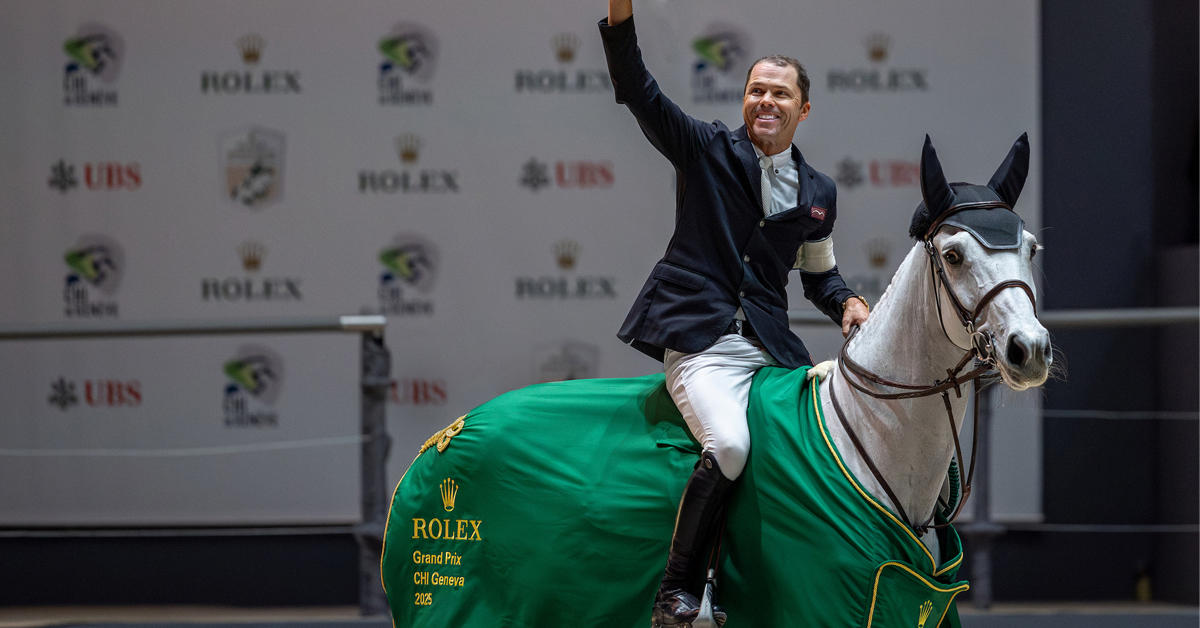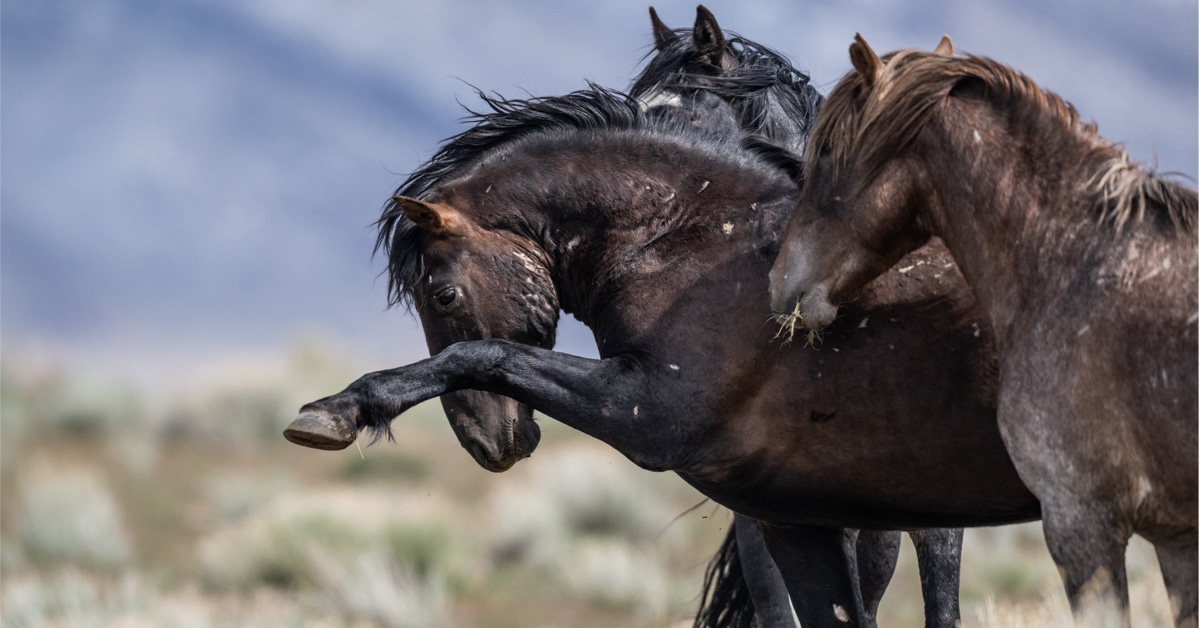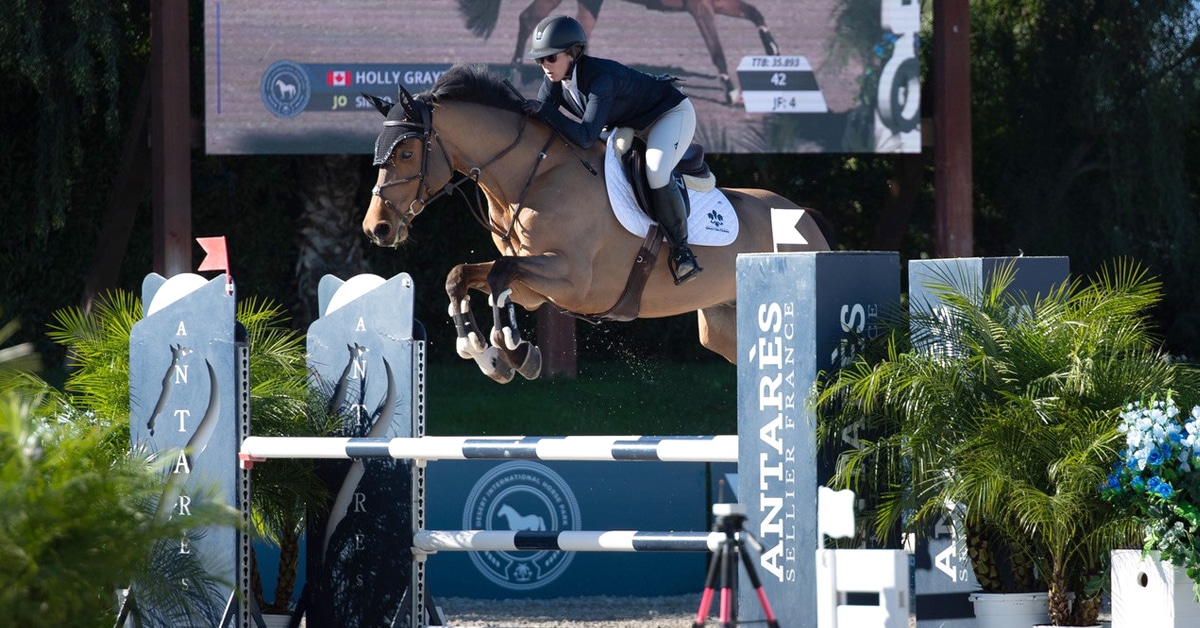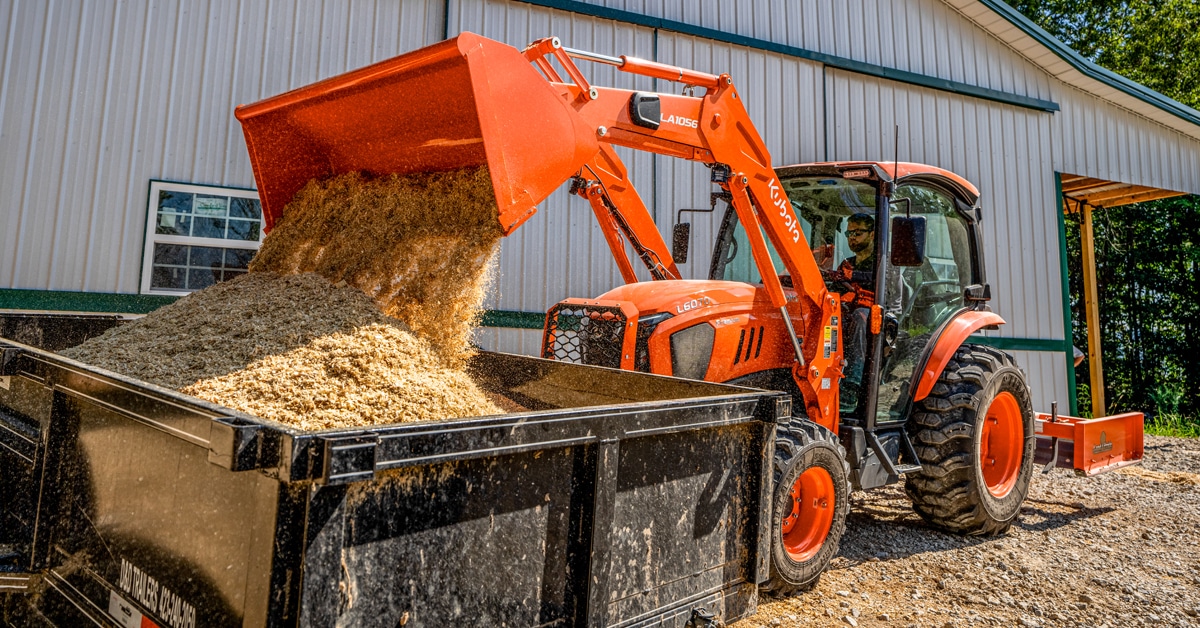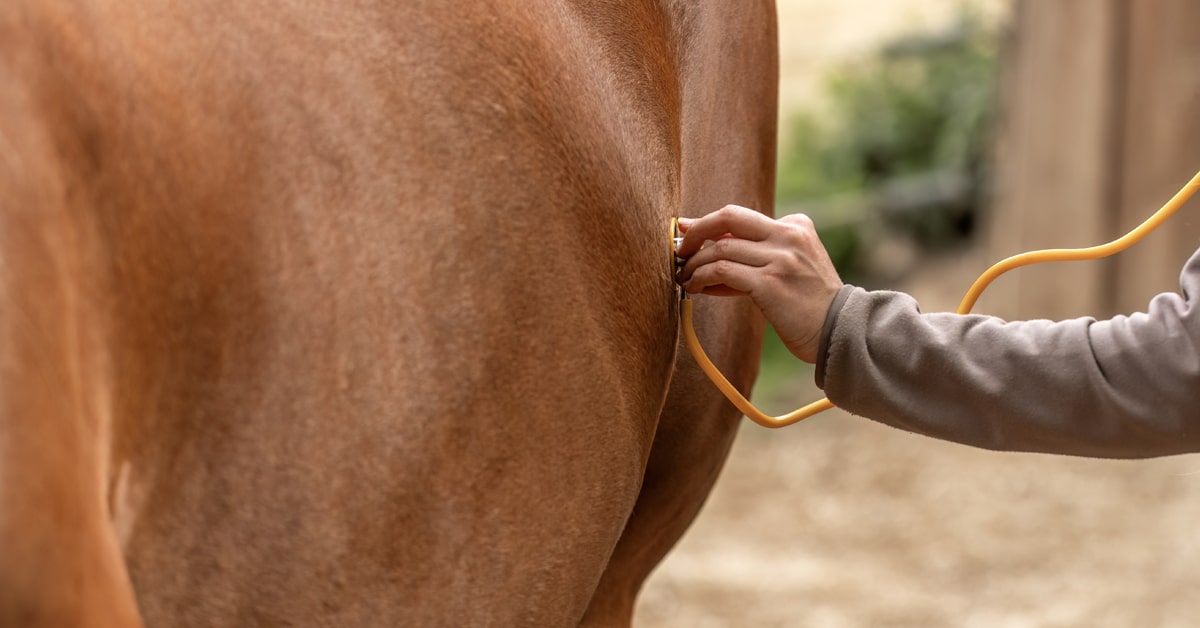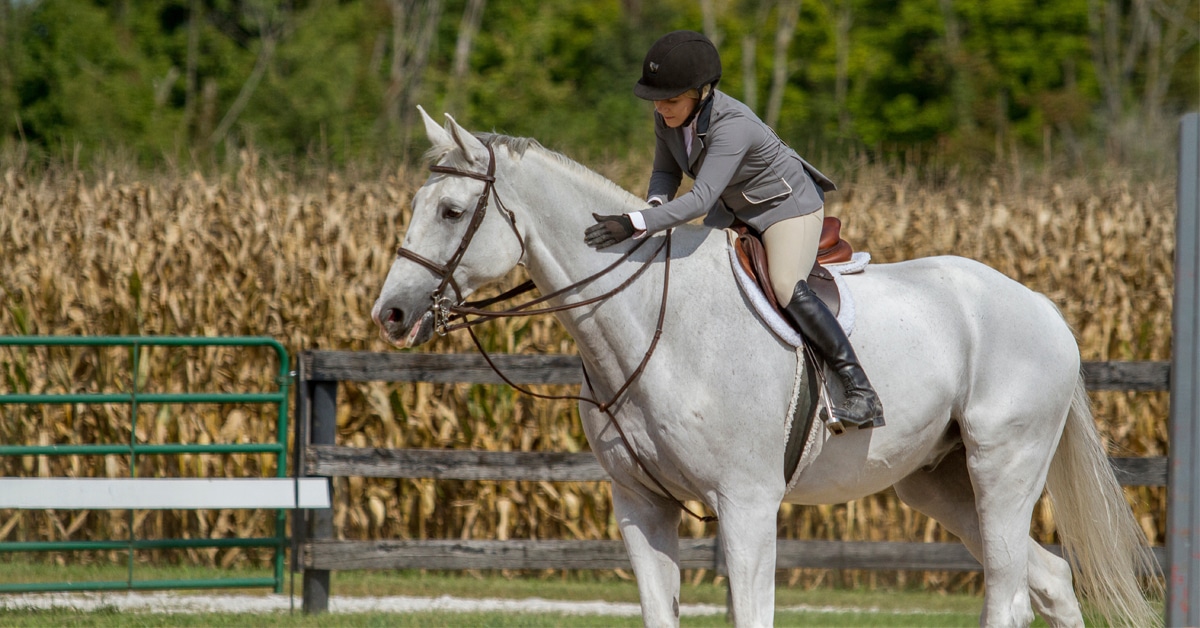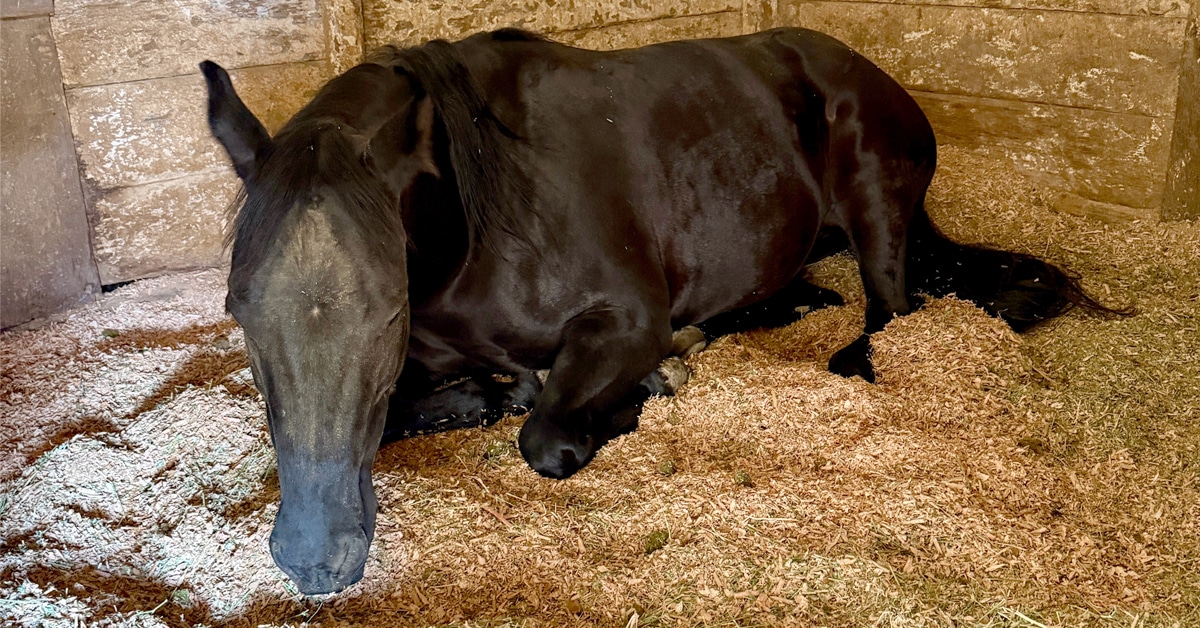Vitamin E is an essential nutrient for horses as it is important for proper muscle and cell function. This means that the horse is unable to synthesize it on their own and therefore it must be provided in adequate amounts in the diet.
Vitamin E is best known for its antioxidant properties. The production of free radicals is normal when the horse metabolizes energy. However, an overproduction leads to oxidative stress which causes cellular damage. With being an antioxidant, vitamin E scavenges the free radicals, and in turn, reduces the cellular damage that results from excess oxidative stress.
For horses in Canada, vitamin E supplementation is crucial to their nutritional well-being as they are not housed on pasture year-round. With vitamin E not being stable in dry hay, most horses require a supplemental source, particularly in the winter months.
Sources of Vitamin E
Fresh pasture is a fantastic source of natural vitamin E but in Canada this is not a luxury we have year-round. In dry hay, vitamin E will be deficient as it is not heat stable, so when the hay is cured, the vitamin E levels will become critically low in that forage. Therefore, any horse that is maintained on a hay diet will require supplementation.
When choosing a supplemental source of vitamin E there are natural and synthetic options. Both are effective; however, the natural sources are more bioavailable. The natural form of vitamin E is d-alpha-tocopherol, and the synthetic is dl-alpha-tocopherol. If you are using a synthetic source, it will work but it will need to be provided at a greater amount to achieve the same result as if you were supplementing with the natural form.
Vitamin E Recommended Levels
The recommended amount of vitamin E as outlined in The National Research Council’s (NRC) Nutrient Requirements of Horses (2007), provides recommended intake amounts based on both body weight and workload. The NRC (2007) recommends 500 IUs per day for the average sized (500 kg) non-working horse; however, most equine nutritionists will recommend supplementing the average sized horse with 1000 IUs of vitamin E per day.
The optimal vitamin E supplementation level is currently unknown for horses. When a horse is exercising, there is exercise-induced oxidative stress which results in the production of more free radicals. Therefore, supplementing working horses with greater amounts of vitamin E is thought to be beneficial. Further research is required to fully elucidate clear recommendations on optimal vitamin E supplementation amounts.
Vitamin E Status
The first step in supplementing your horse with vitamin E should be ensuring that their daily ration is meeting the NRC recommended amount for their weight class and workload. An equine complete hay lab analysis does not provide the vitamin E amount in that forage. Therefore, evaluating the vitamin E content of the rest of their daily ration is important. This would include products such as a ration balancer, performance feed or any top-dressing supplements.
If you are feeding your horse a quality ration balancer, or a performance feed at the manufacturer’s recommended amount, that product will likely be providing them with adequate vitamin E. If you are concerned about your horse’s vitamin E status, it is recommended to have your veterinarian take a blood sample to evaluate.
Blood sampling is the most accurate way to evaluate your horse’s vitamin E status. If there is a deficiency detected in your horse’s blood sample, higher doses (10,000 IUs) will be used for a short-term to eliminate the deficiency. In deficiency situations, it is recommended to ensure you are using a natural form of vitamin E as they are more bioavailable.
With vitamin E, horses can be unique in their metabolism. For example, two horses receiving the NRC-recommended amount of vitamin E may have different blood serum levels. It is possible for one of the horses to be deficient and the other to have adequate levels. This is not a reason to over supplement your horse for no reason, but a reason to invest in the blood serum testing if you do have concerns.
If your horse is receiving adequate vitamin E, and there is no deficiency present then it is unnecessary to over supplement this nutrient. Normally, extra vitamin E is not toxic, however, you can over supplement to a level in which it interferes with the absorption of other fat-soluble vitamins.
To conclude, vitamin E is an essential nutrient for horses and is well-known for its antioxidant properties. Horses without daily access to fresh pasture, equine athletes, broodmares, and breeding stallions typically need additional supplementation of vitamin E. Although both the natural (d-alpha-tocopherol) and synthetic (dl-alpha-tocopherol) forms are effective, the natural forms are more bioavailable to the horse, meaning that less is required to achieve the same result.
Before adding additional vitamin E to your horse’s diet and greatly over supplementing, take the time to evaluate the amount of vitamin E in the products they are currently consuming. Additionally, if you have concerns about your horse’s vitamin E status, contact your veterinarian about blood serum testing.
The Latest
